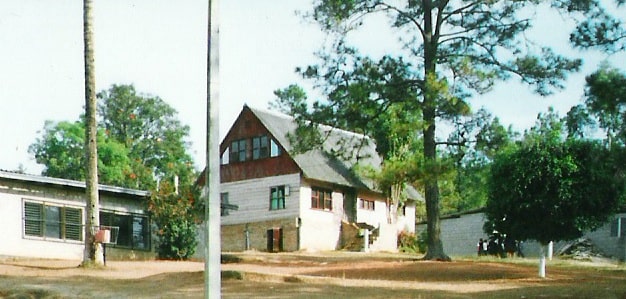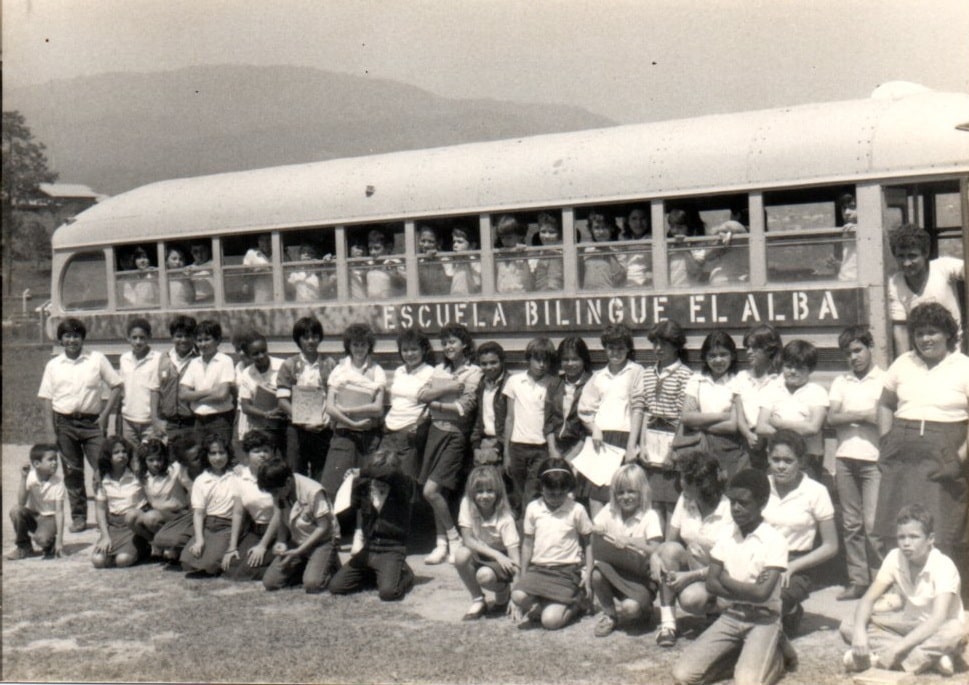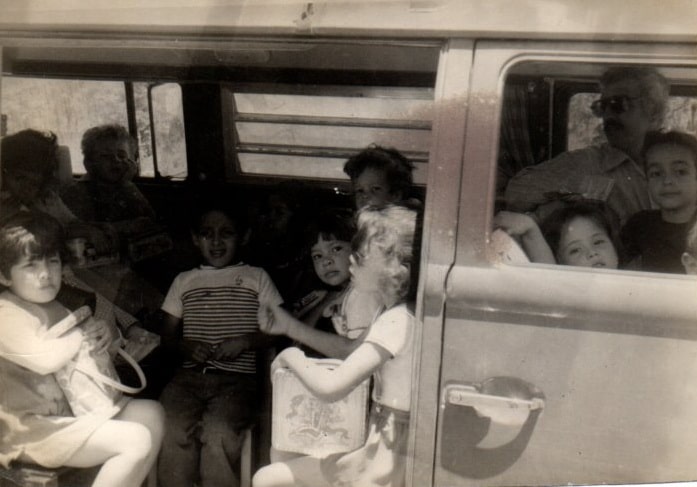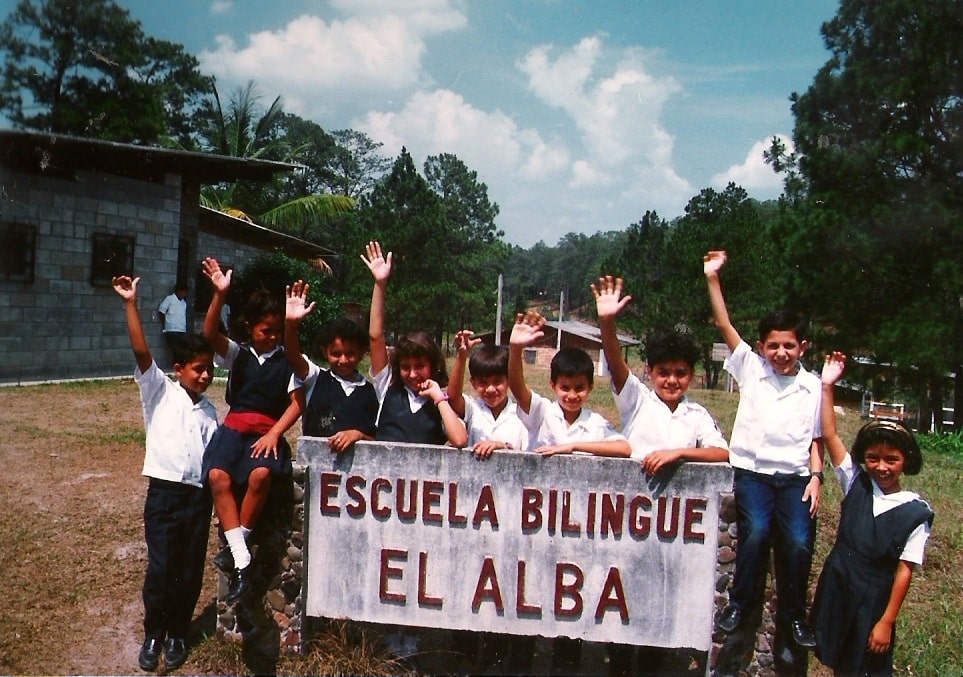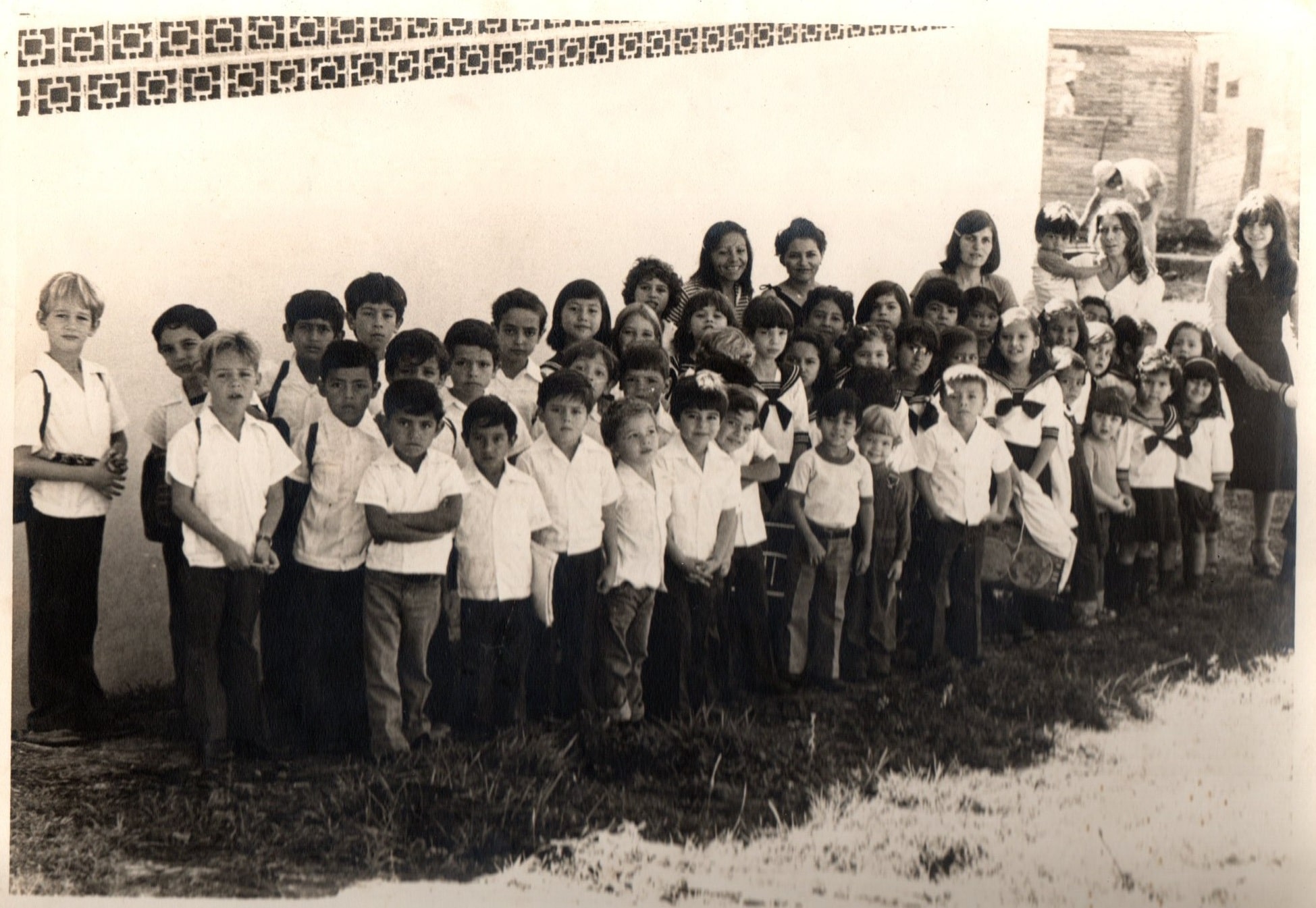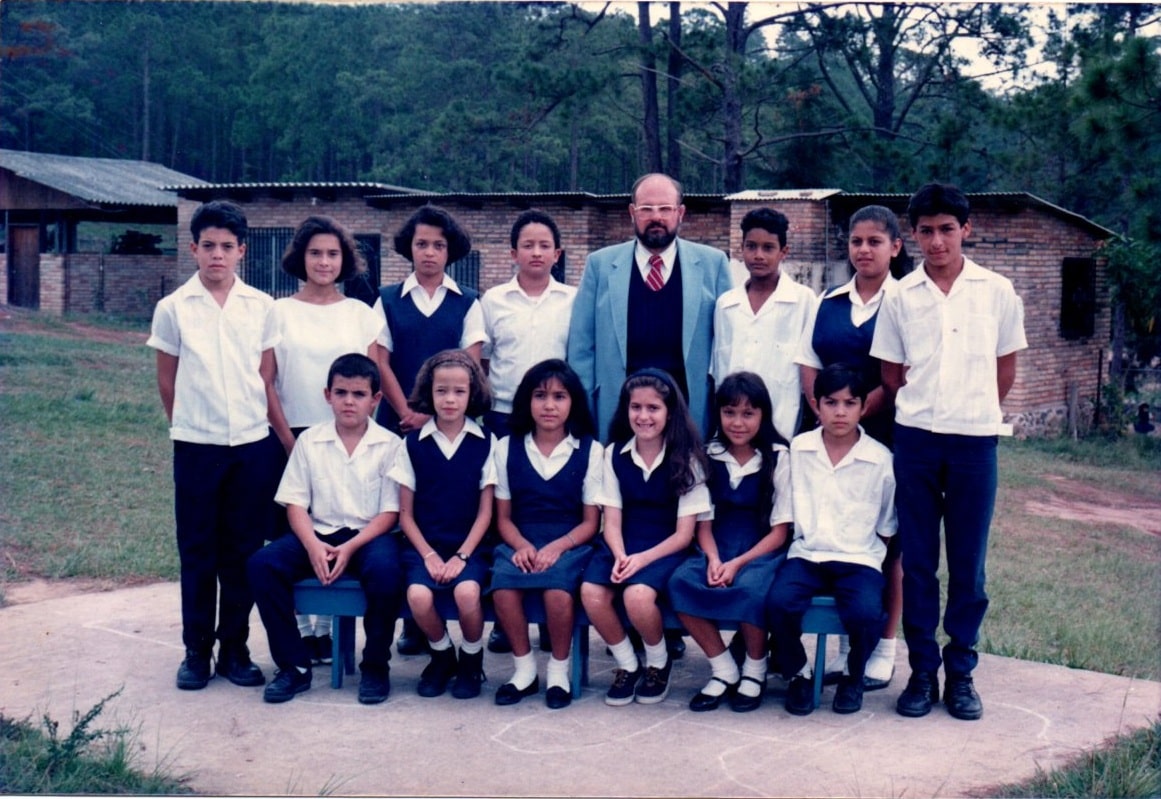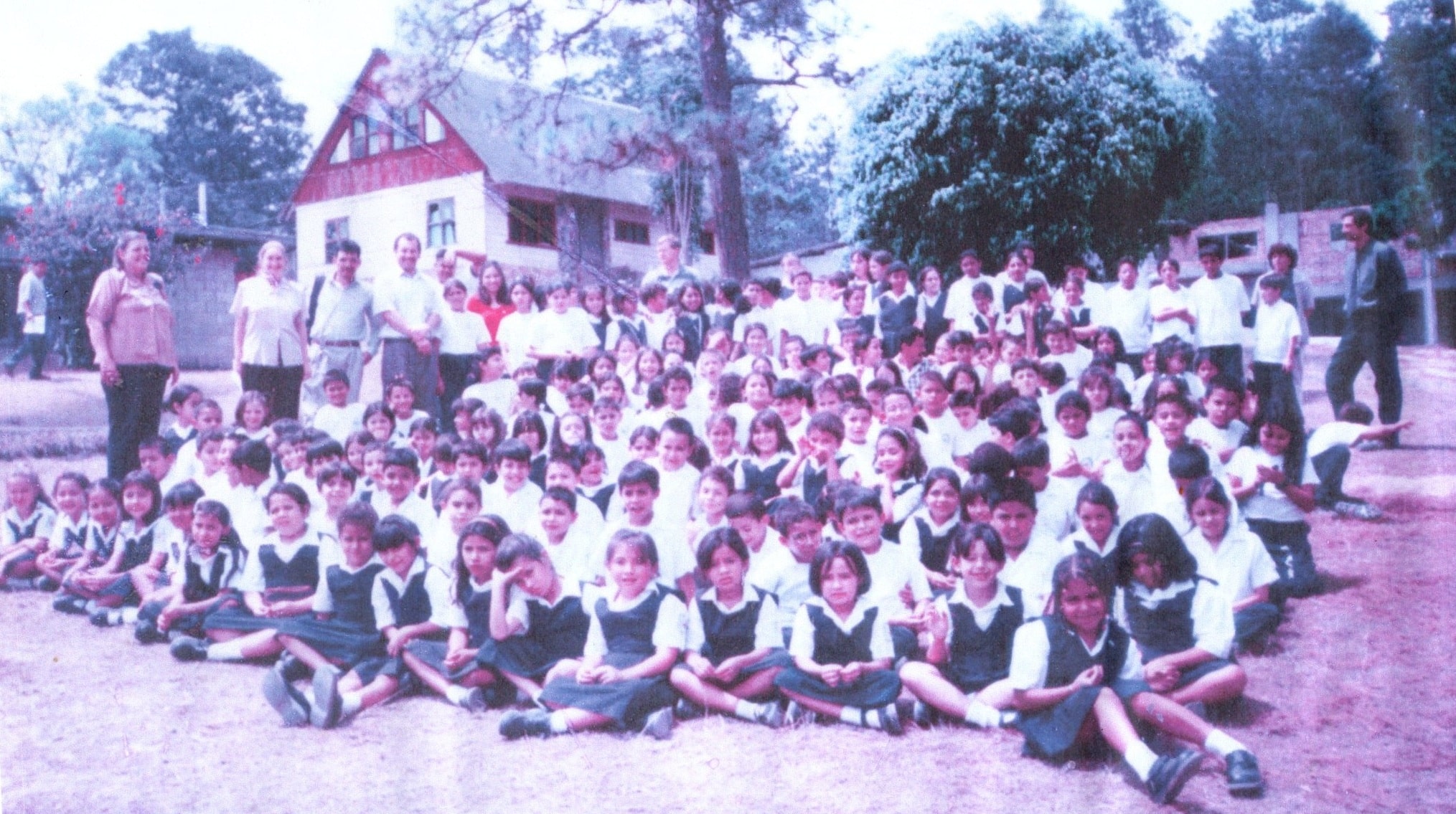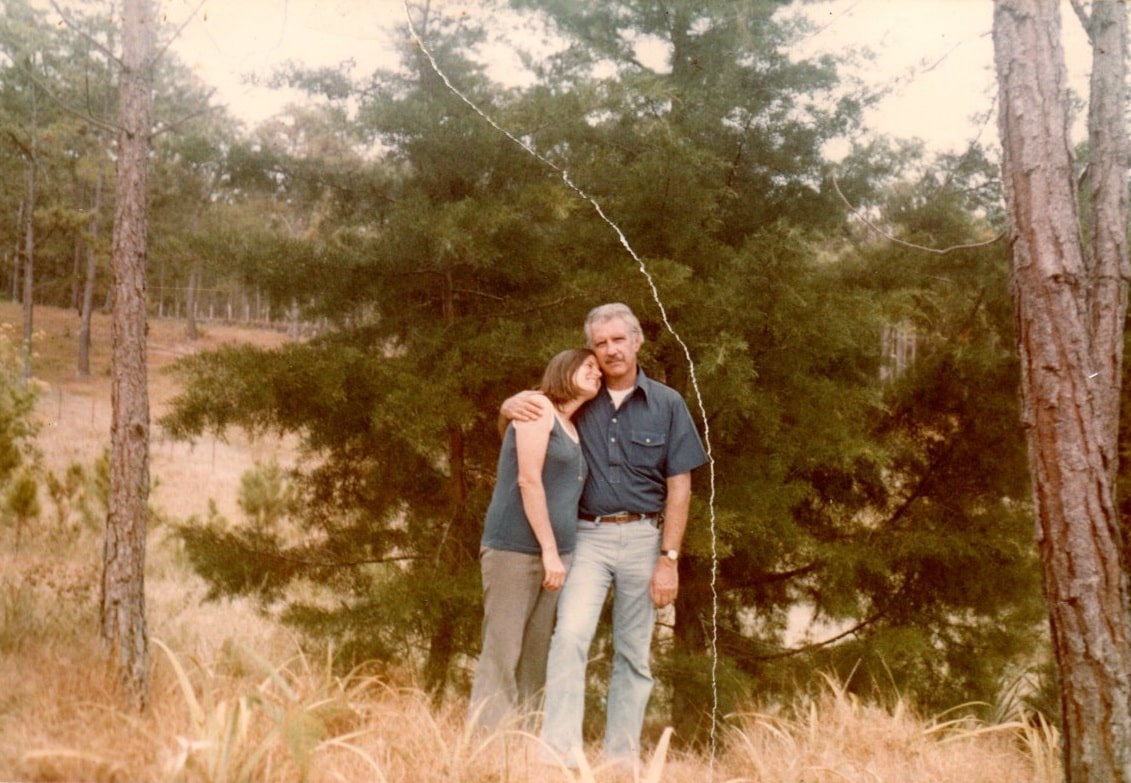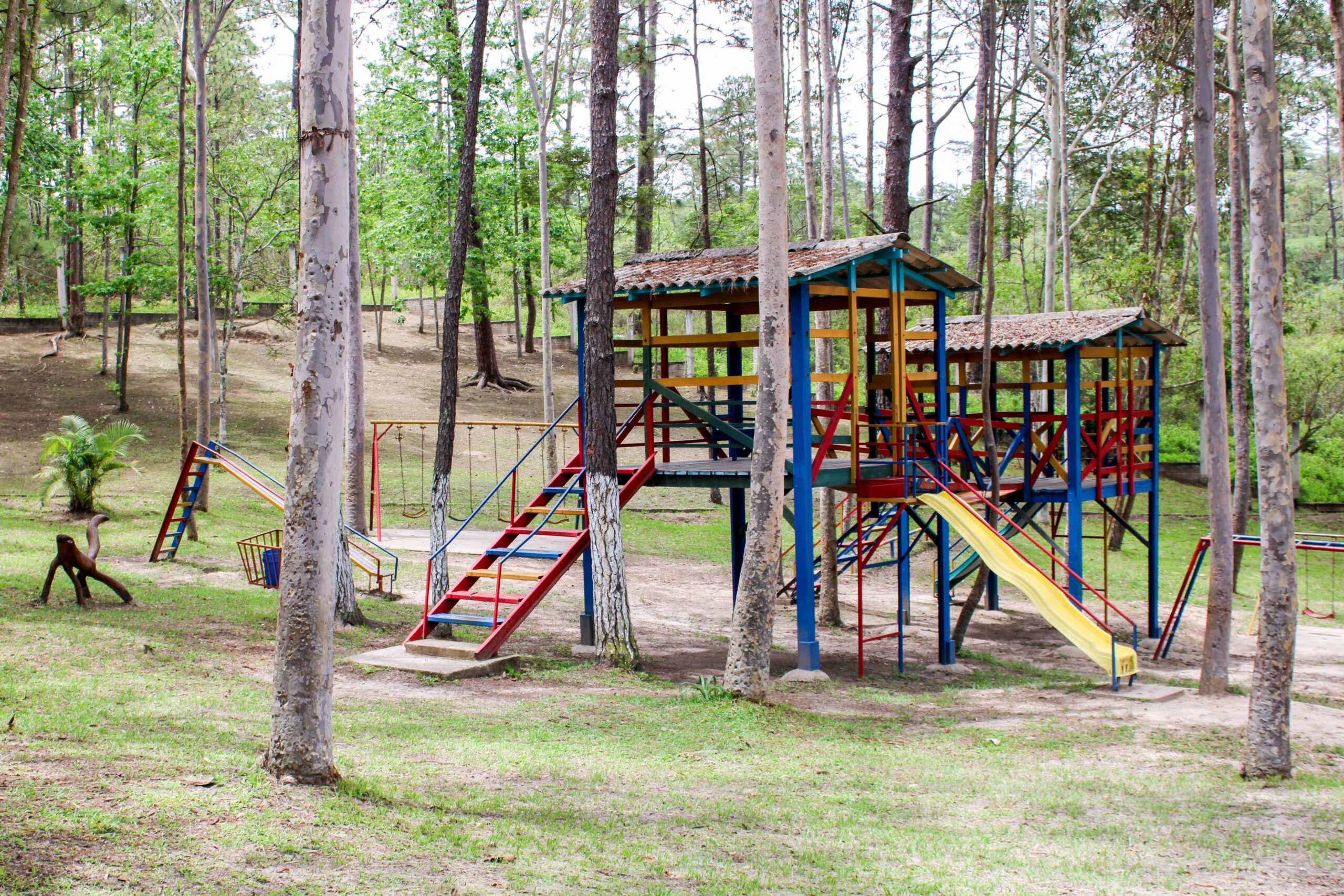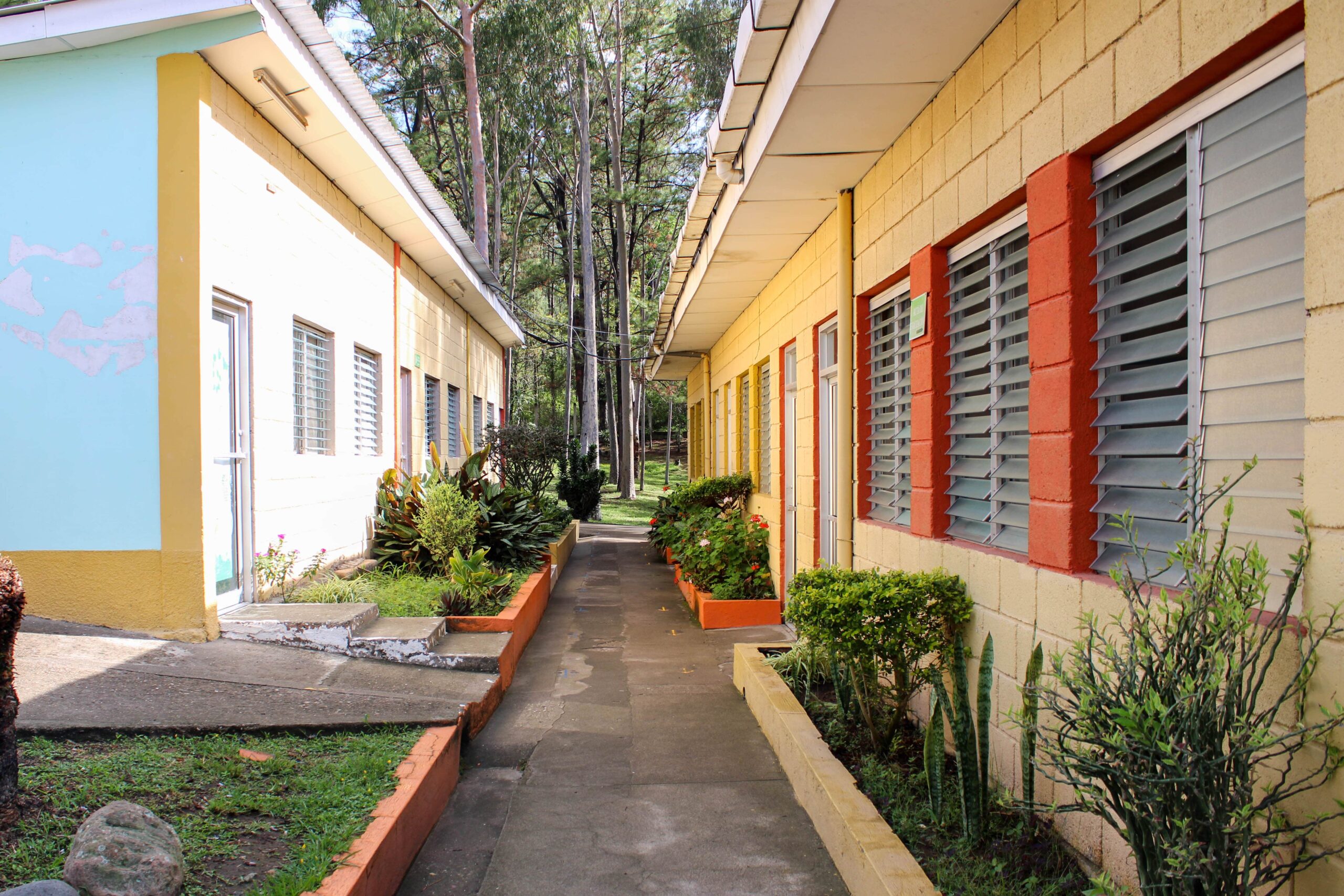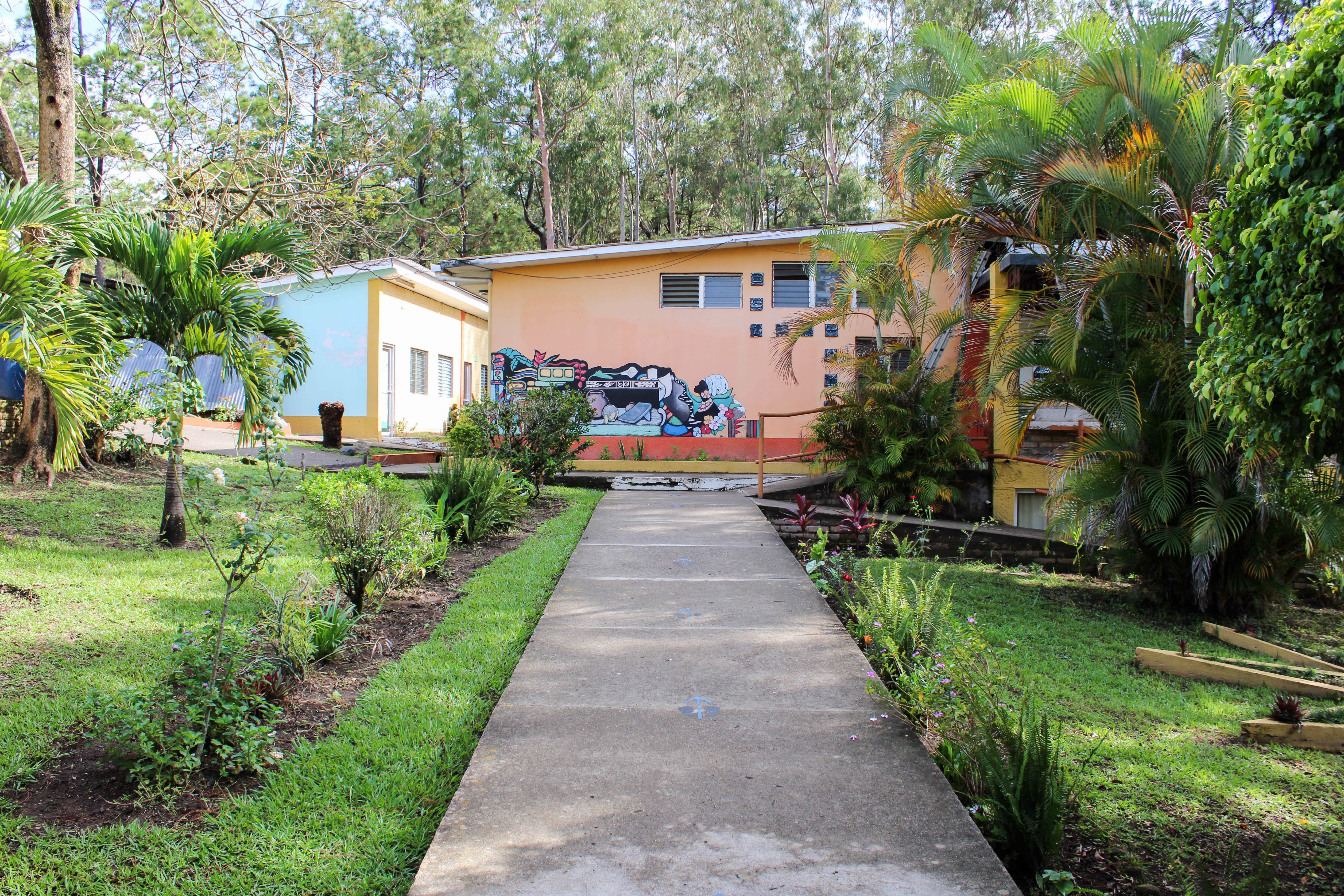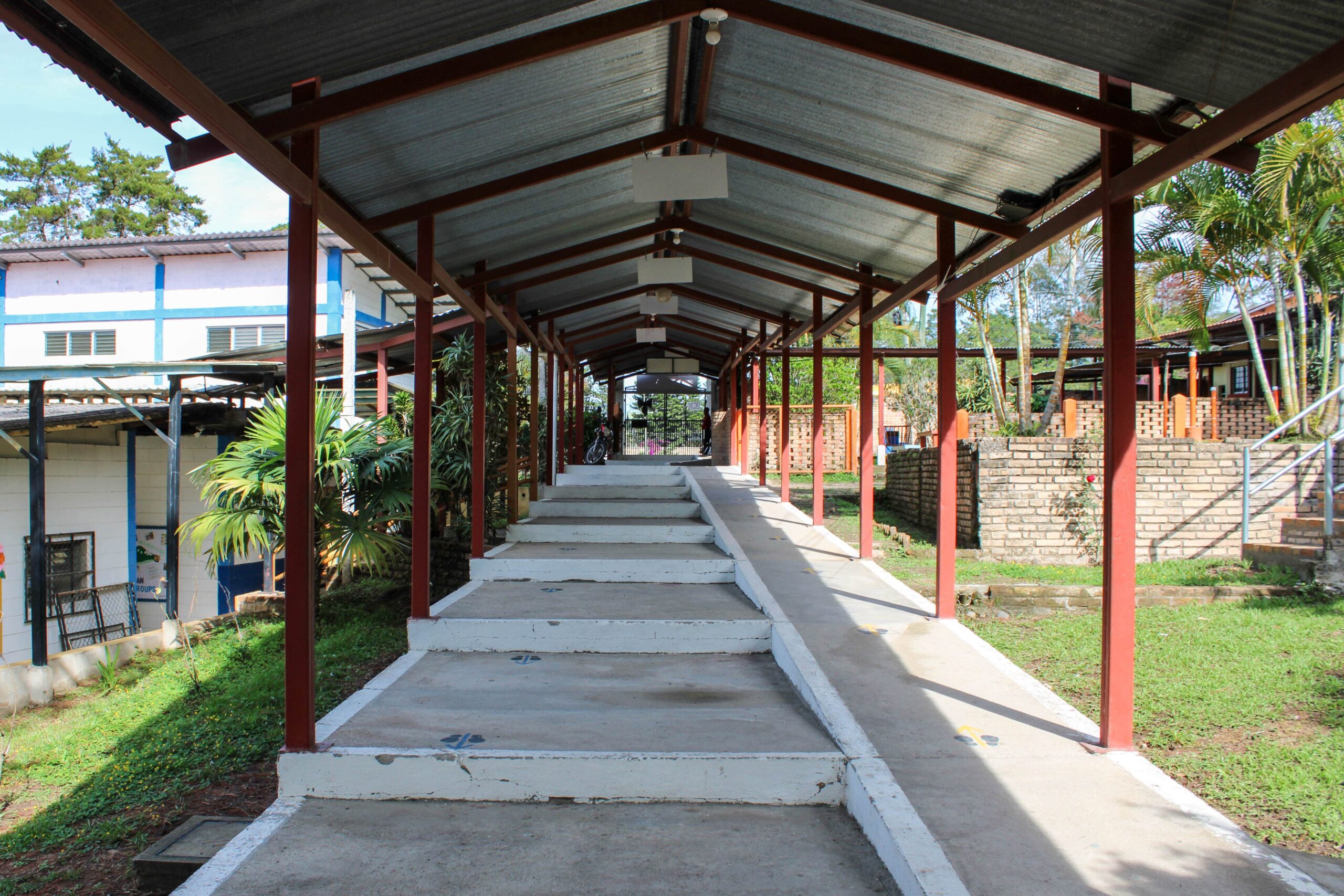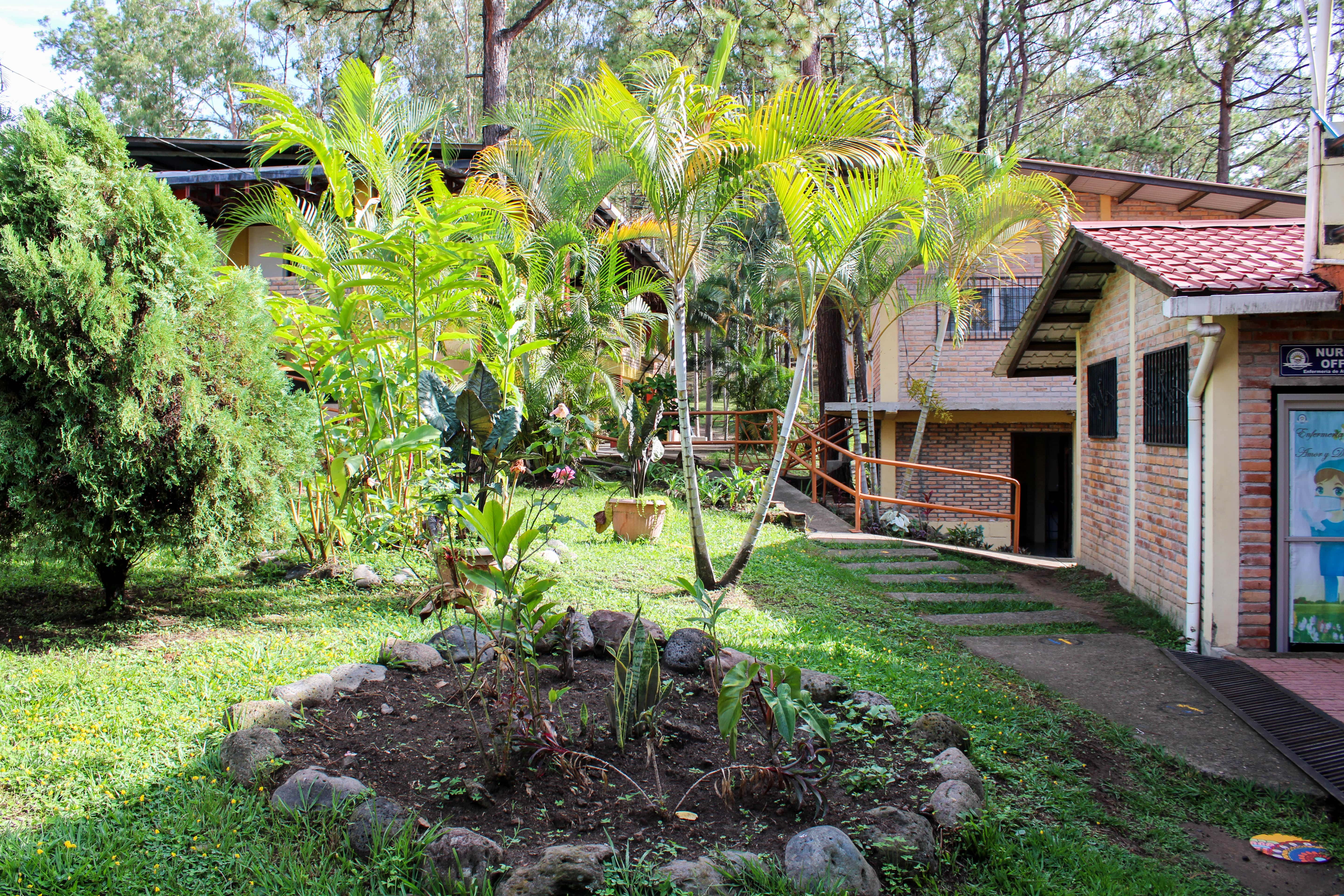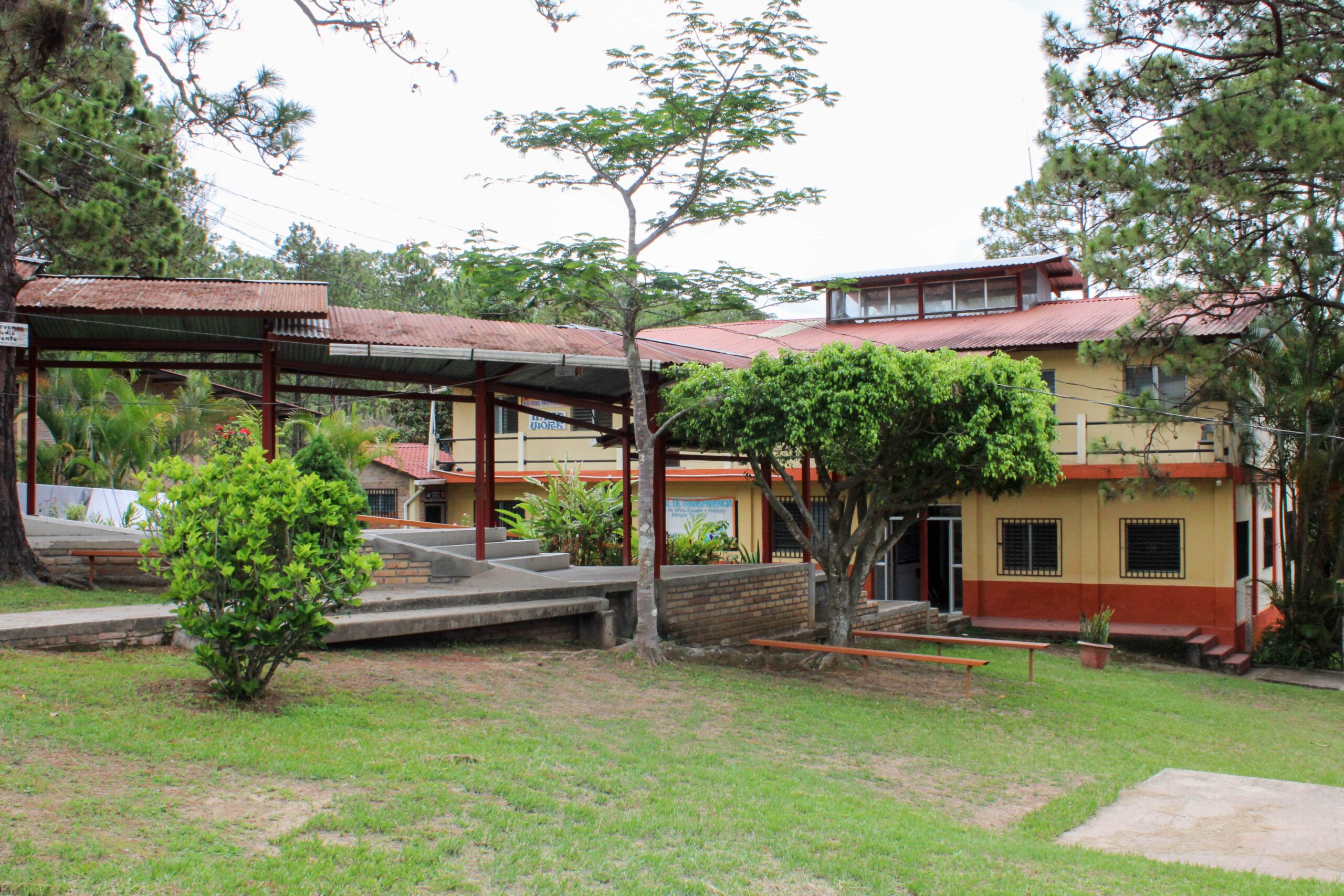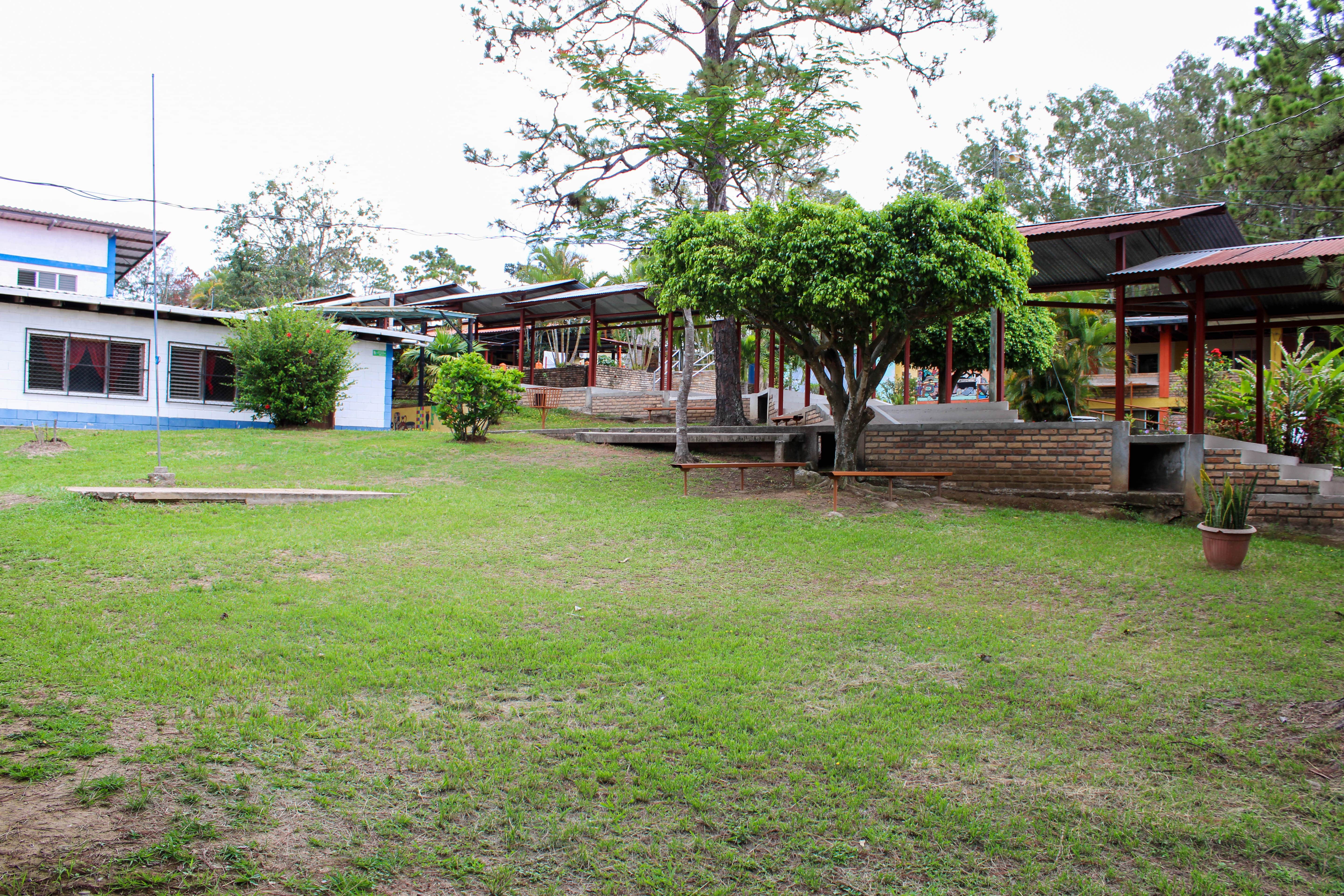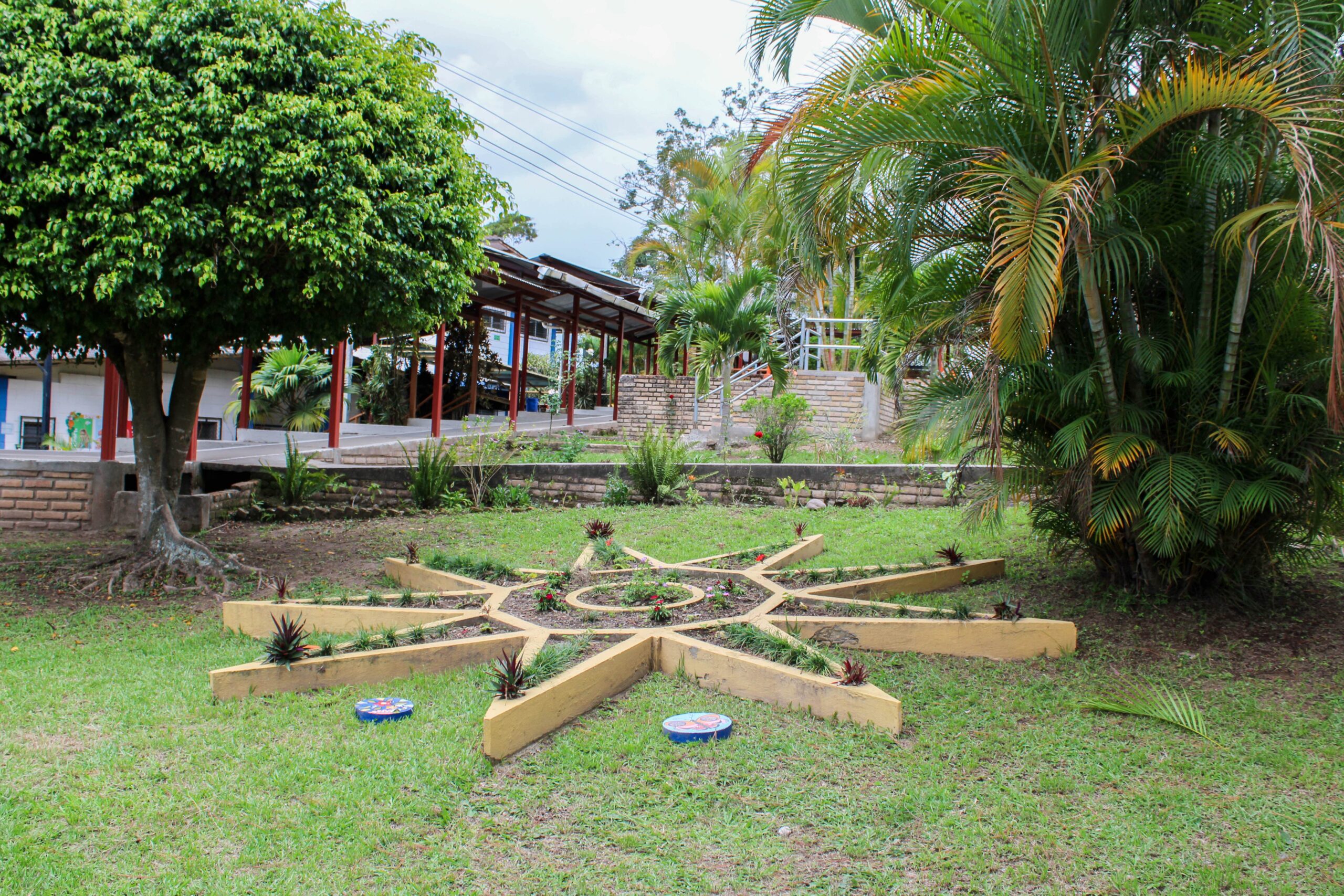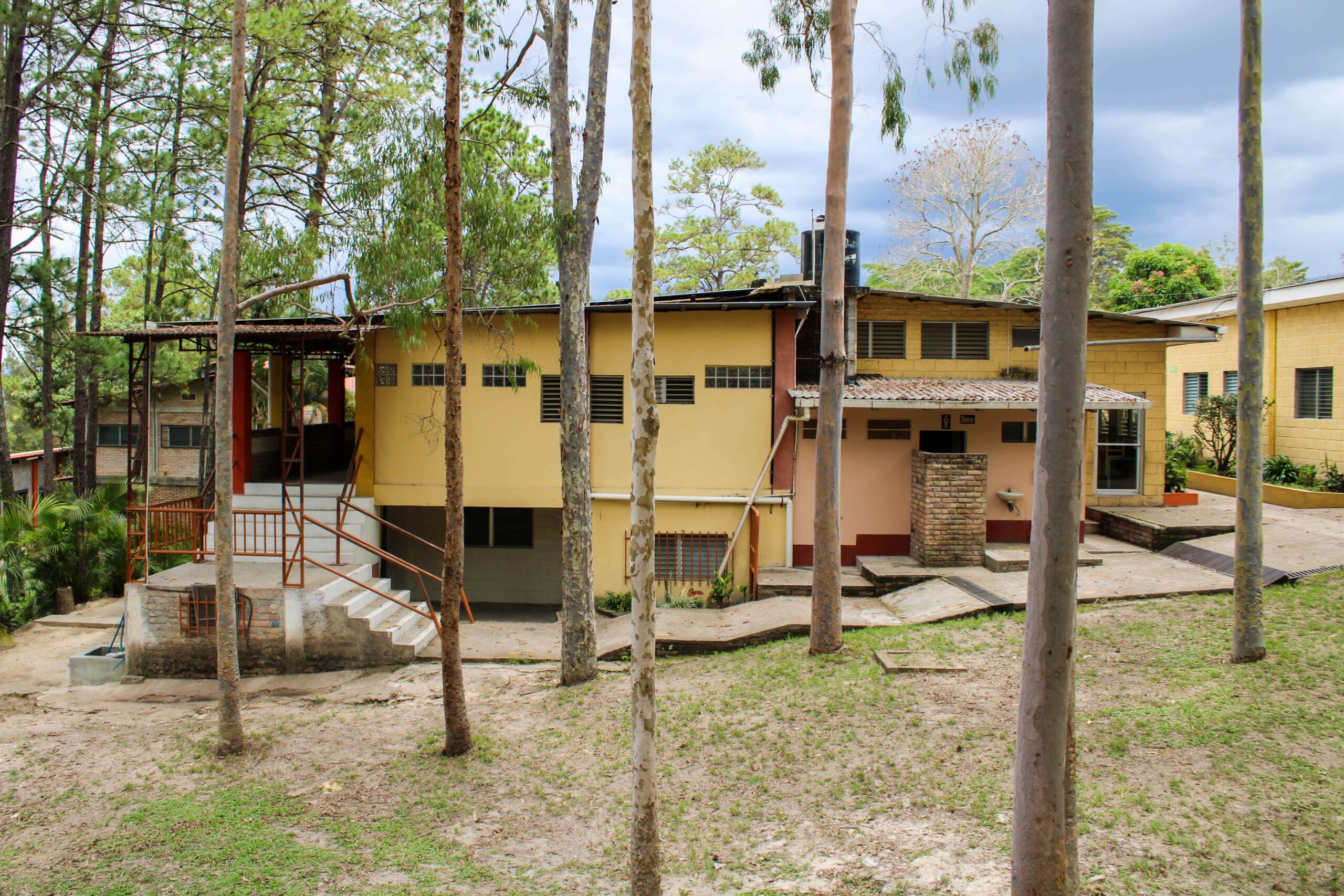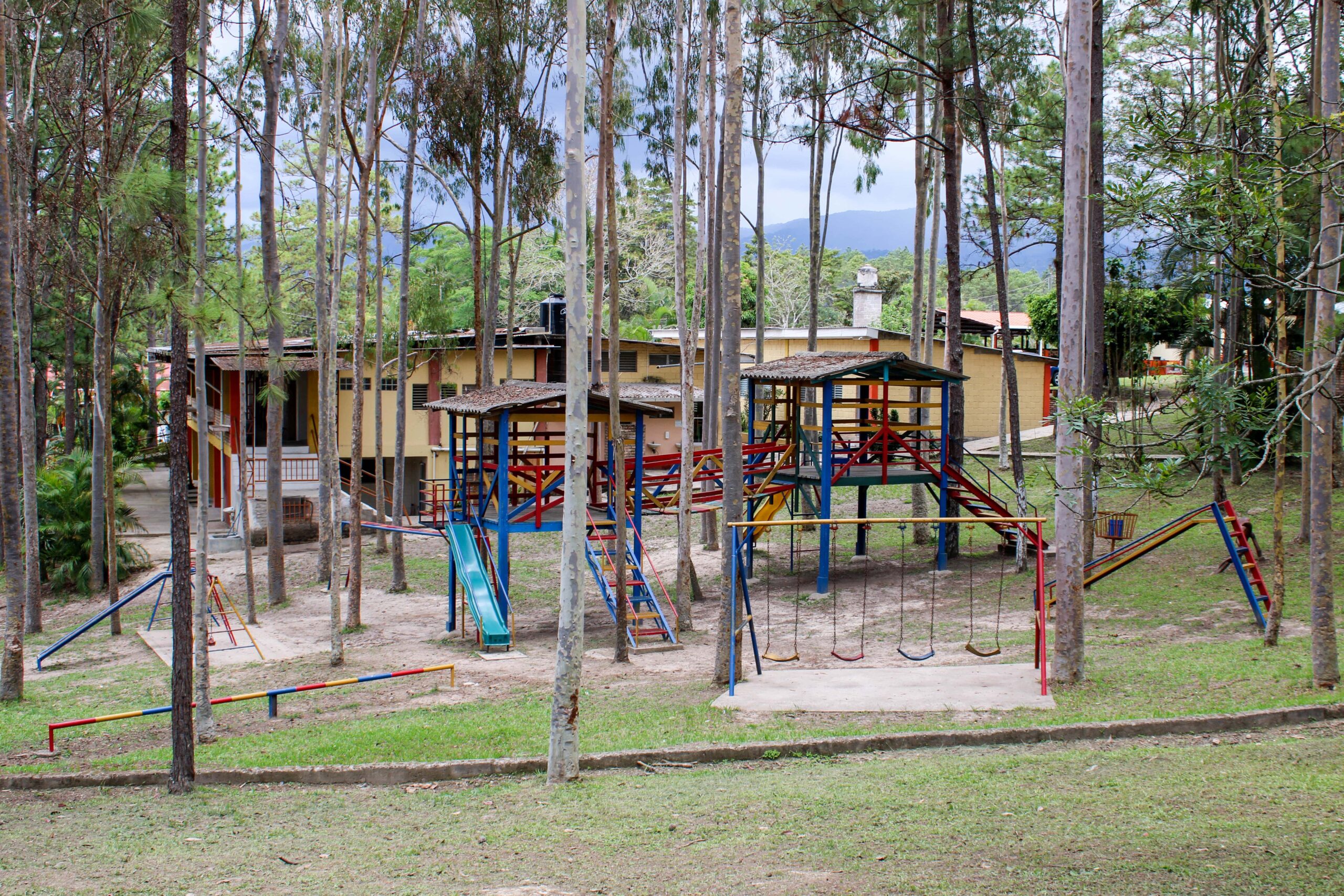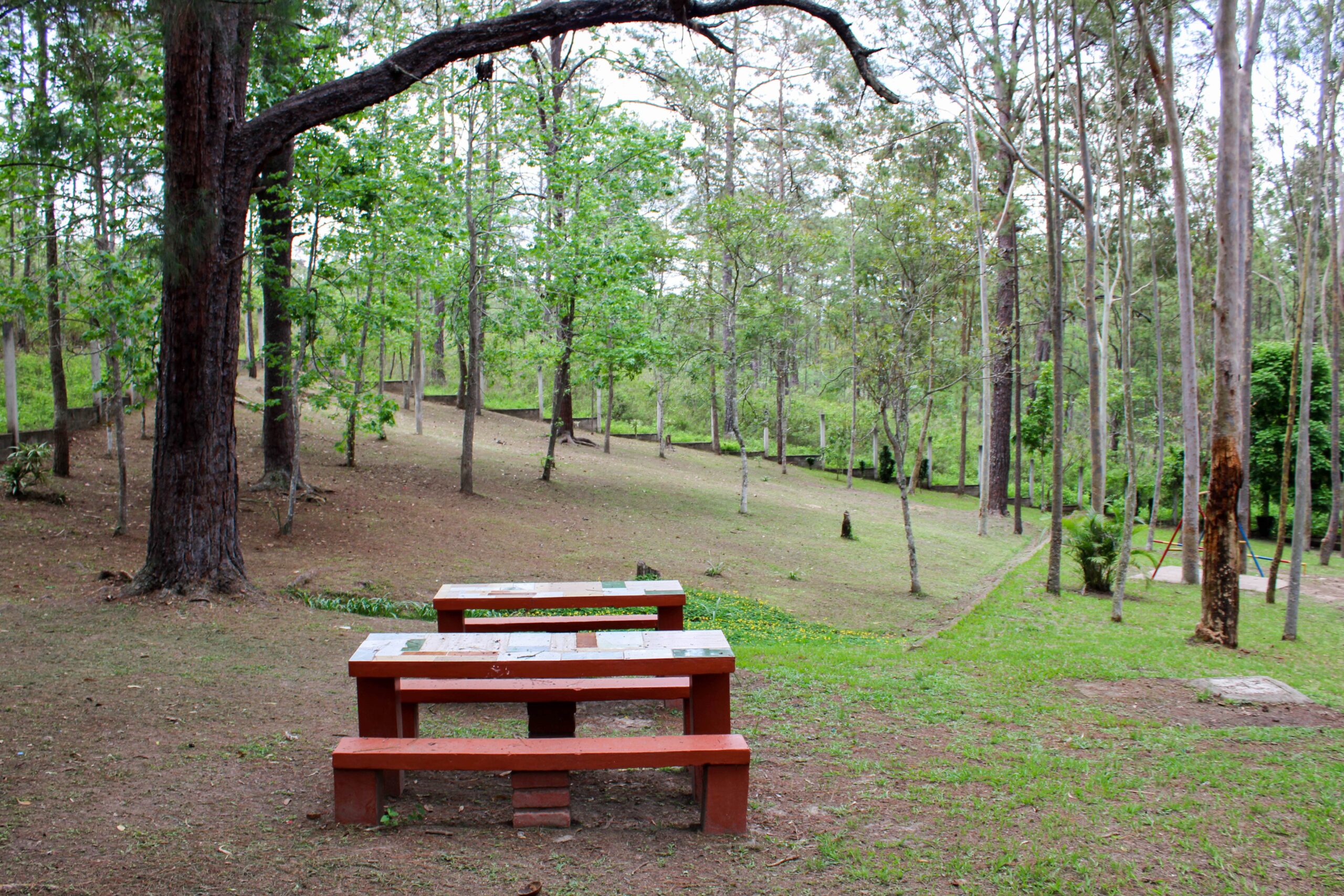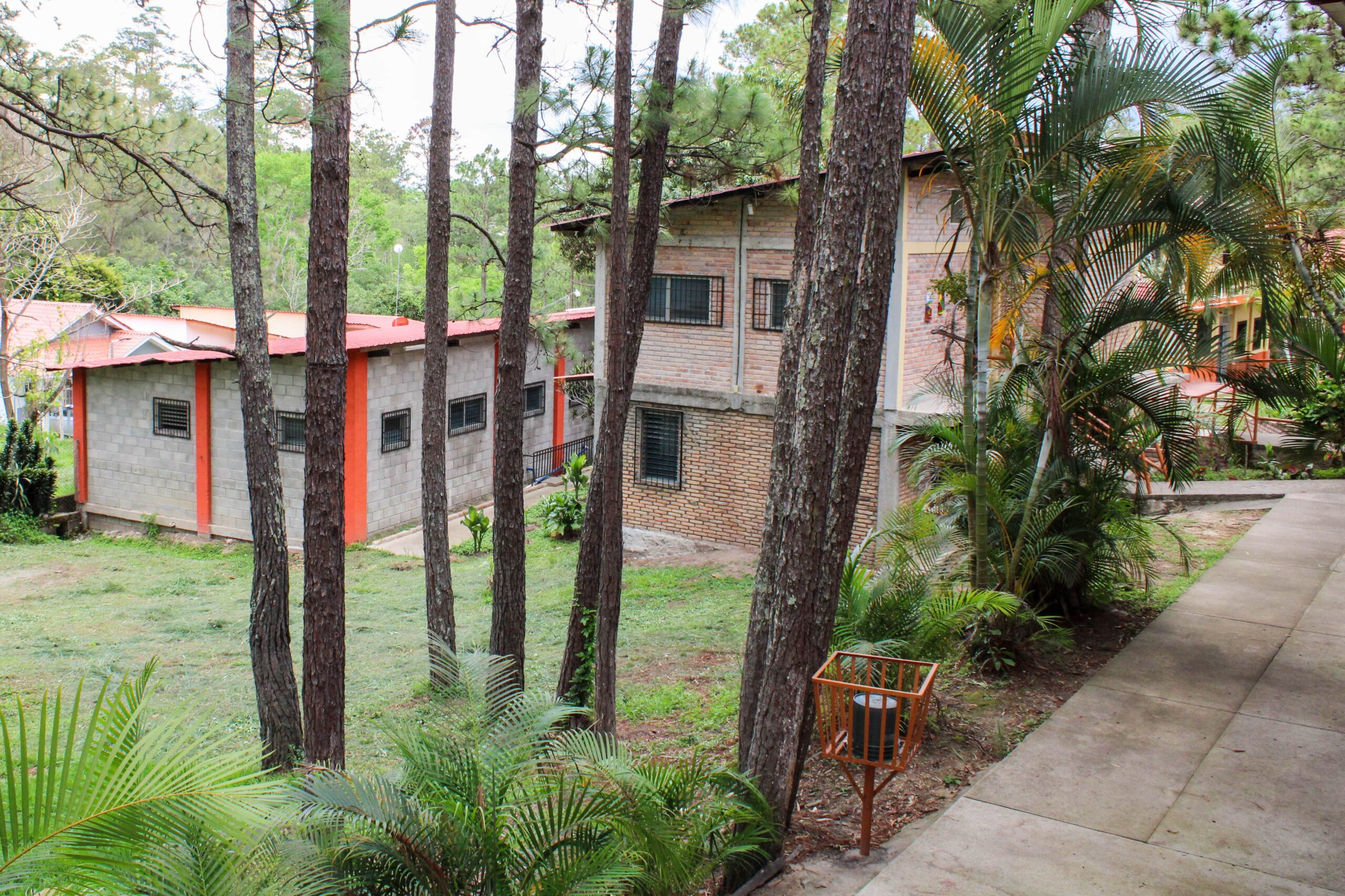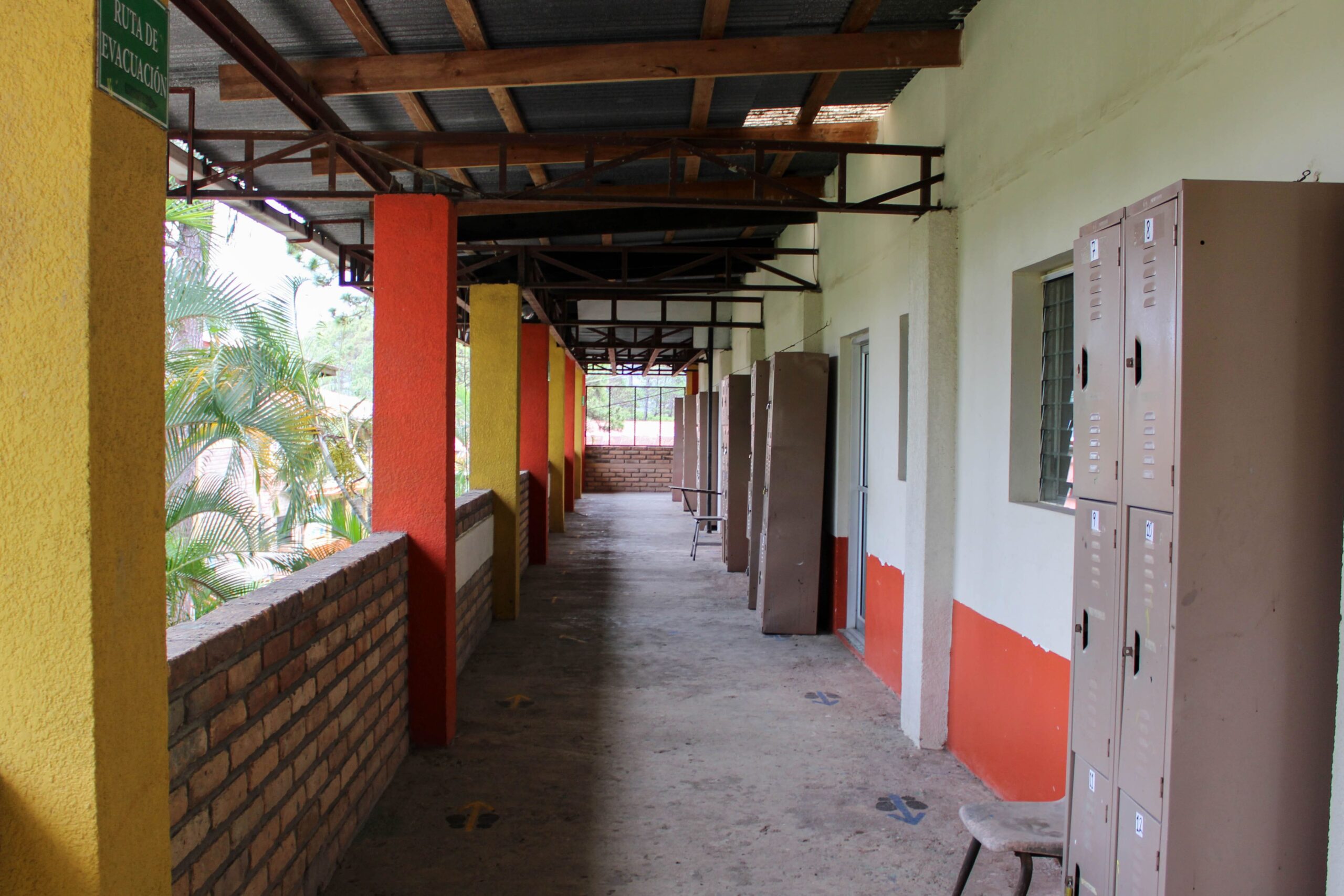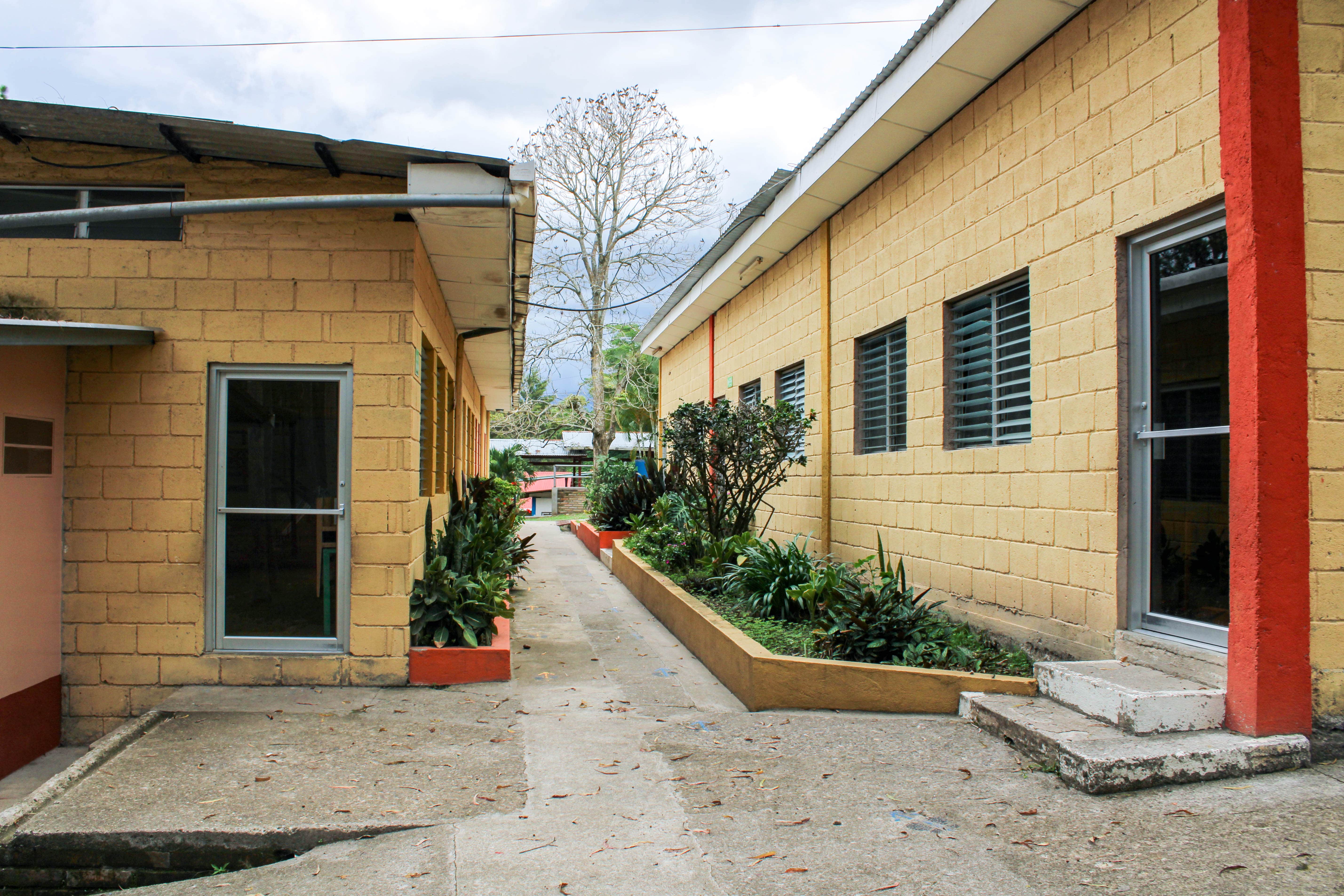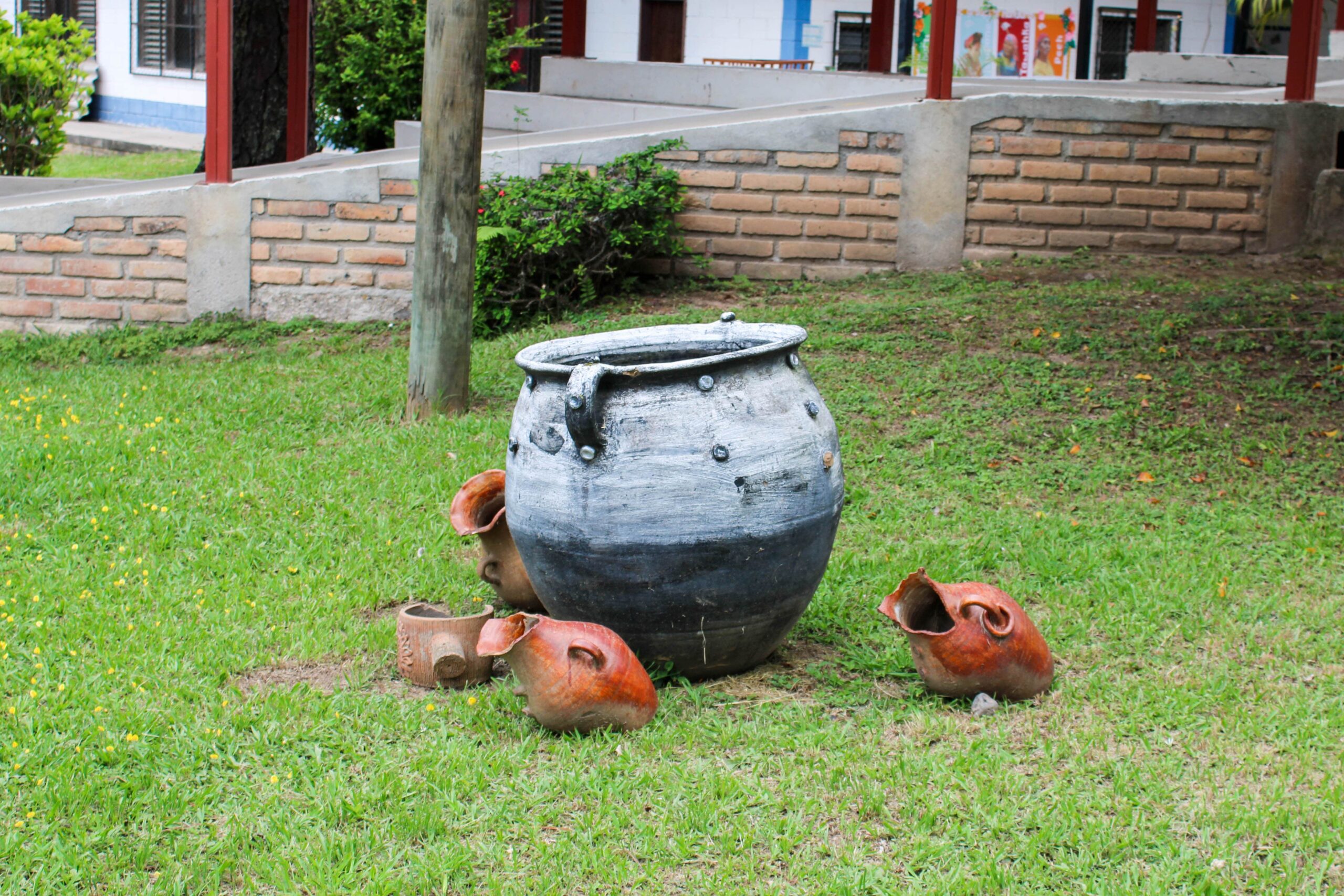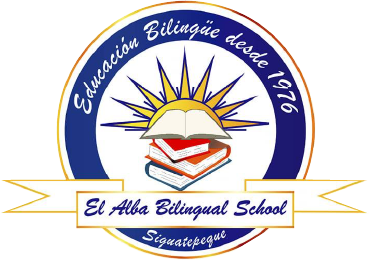OUR STORY
El Alba School is a family enterprise that started in the living room of the house Charles built with his own hands, gradually growing into the thriving institution it is today, with over 450 students.
Jacqueline "Jackie" and Charles Cornell arrived in Honduras to serve the Baha'i community in 1970; Jackie was pregnant with their first child, Khalila. In 1972, they moved to Siguatepeque. During their first year here, they earned their living selling homemade candy in the public market. Later, Charles, an engineer by training, did electrical and plumbing installations on construction
projects around town.
In 1974, the Cornells bought a piece of land at the edge of town, right up against the Calanterique Forest, and began building a house. When their oldest daughter Khalila reached school age, the Cornells wanted her to learn in English as well as Spanish, but at the time, there were no bilingual schools in the area. Since Jackie had been a grade school teacher in the US, the Cornells decided to initiate home schooling. To help their daughter develop social as well as academic skills, they invited a small group of neighboring children to classes in the living room of the still-under-construction house on a hill under the eaves of the forest.
The classes were popular, and the following year, additional parents asked if their children could join, as well as the younger siblings of the original group, eventually including the Cornells’ younger children. The still unfinished living room was divided and became two classrooms, and the process of expanding one year per grade began. Additional adjoining lots were purchased, allowing the school room to grow. Certification was granted by the Honduras Ministry of Education, and so the first bilingual school in central Honduras came to be. Permission was given to form a kindergarten, then an elementary, and finally a secondary school as the school expanded. Continuing construction became a parallel process to an expanding academic curriculum and a growing staff of professionals, headed by Jackie and Charles, who did everything from teaching to maintenance to administration.
In the first few years, Charles converted a 1970 VW van into a school bus, which he himself drove. Later, as enrollment grew, they bought more school buses, which the family drove from the US to Honduras. Additional buses were gradually acquired, and the school now serves Siguatepeque and the surrounding suburbs with five buses. Charles no longer drives any of them, but he still remembers earlier times when a fourth grader asked another one, “What does Mr. Cornell do at the school?”
The other student said, “Oh, he mostly picks up paper and trash around the school”. It was
Charles’s habit to pick up trash wherever he found it.
“Is that all?”
“No, he also drives the school bus, fixes stuff, and teaches English, Math, Science, and Social
Studies in his spare time”.
Today, the school occupies about five acres, including dozens of classrooms, a playground set
amid trees and flowers, a pre-K complex of spacious rooms and play sets, a music room, a library, a computer lab, a science lab, an audio-visual lab, a basketball court / auditorium, a soccer field, and administrative offices. It is widely considered the best bilingual school in the central region. Since its first graduating class in 1988, El Alba has seen many graduates admitted to Honduran universities, where El Alba is highly regarded, and to universities in the US, Canada, Europe, Taiwan, and other countries, teaching young people from the small city of Siguatepeque in the hills of Honduras to be true world citizens.
After almost 50 years, the family legacy of service lives on as Khalila, the Cornell’s daughter born weeks after their arrival, and El Alba’s first student, now heads the school, shepherding it through pandemics, hurricanes, and everything the world has thrown at it to continue serving the people of Honduras with dedication, the highest standards of professionalism, and above all, love.
